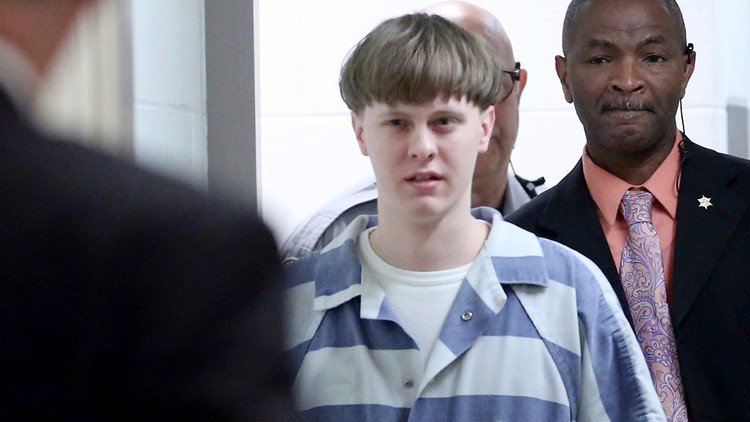WASHINGTON — The Supreme Court has rejected an appeal from Dylann Roof, who challenged his death sentence and conviction in the 2015 racist slayings of nine members of a Black South Carolina congregation.
Roof had asked the court to decide how to handle disputes over mental illness-related evidence between capital defendants and their attorneys. The justices did not comment Tuesday in turning away the appeal.
Roof fired his attorneys and represented himself during the sentencing phase of his capital trial, part of his effort to block evidence potentially portraying him as mentally ill.
U.S. District Judge Richard Gergel held two competency hearings for Roof: one before the start of his trial, and one before its sentencing phase, to determine if Roof could act as his own attorney for that portion of the trial. His appellate team wrote that the court errantly found Roof competent, despite the fact that “every defense expert agreed Roof suffered a delusional belief he would be rescued by the victors of a race-war, which prevented him from understanding the threat of execution was real."
Representing himself for sentencing, Roof successfully prevented jurors from hearing mitigating evidence about his mental health, “under the delusion,” his attorneys later wrote, that “he would be rescued from prison by white-nationalists — but only, bizarrely, if he kept his mental-impairments out of the public record.”
Roof shot participants at a Bible study session at Mother Emanuel AME Church in Charleston, South Carolina.
A panel of appellate judges had previously upheld his conviction and death sentence.
Roof, 28, is on federal death row at a maximum-security prison in Terre Haute, Indiana. He can still pursue other appeals.
In 2017, Roof became the first person in the U.S. sentenced to death for a federal hate crime. Authorities have said Roof opened fire during the closing prayer of a 2015 Bible study session at Charleston's Mother Emanuel AME Church, raining down dozens of bullets on those assembled. Roof was 21 years old at the time.
In a lengthy brief, Roof's attorneys in 2021 argued that an appellate court should vacate Roof's convictions and death sentence, or remand his case to court for a “proper competency evaluation."
“The federal trial that resulted in his death-sentence departed so far from the standard required when the government seeks the ultimate price that it cannot be affirmed,” they wrote, arguing that their client's mental illness should have prevented him from serving as his own attorney during a portion of the trial, and also being sent to federal death row.



